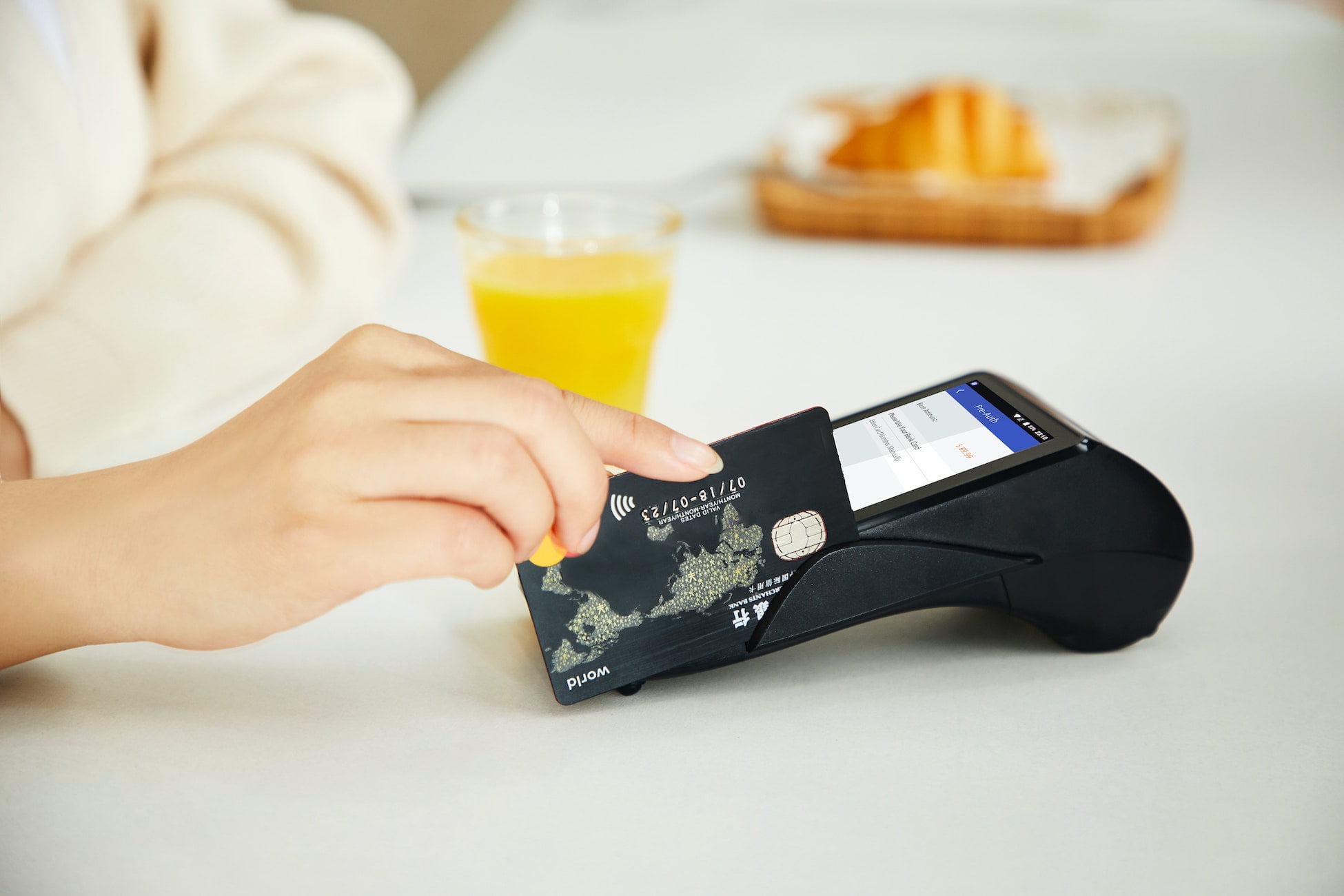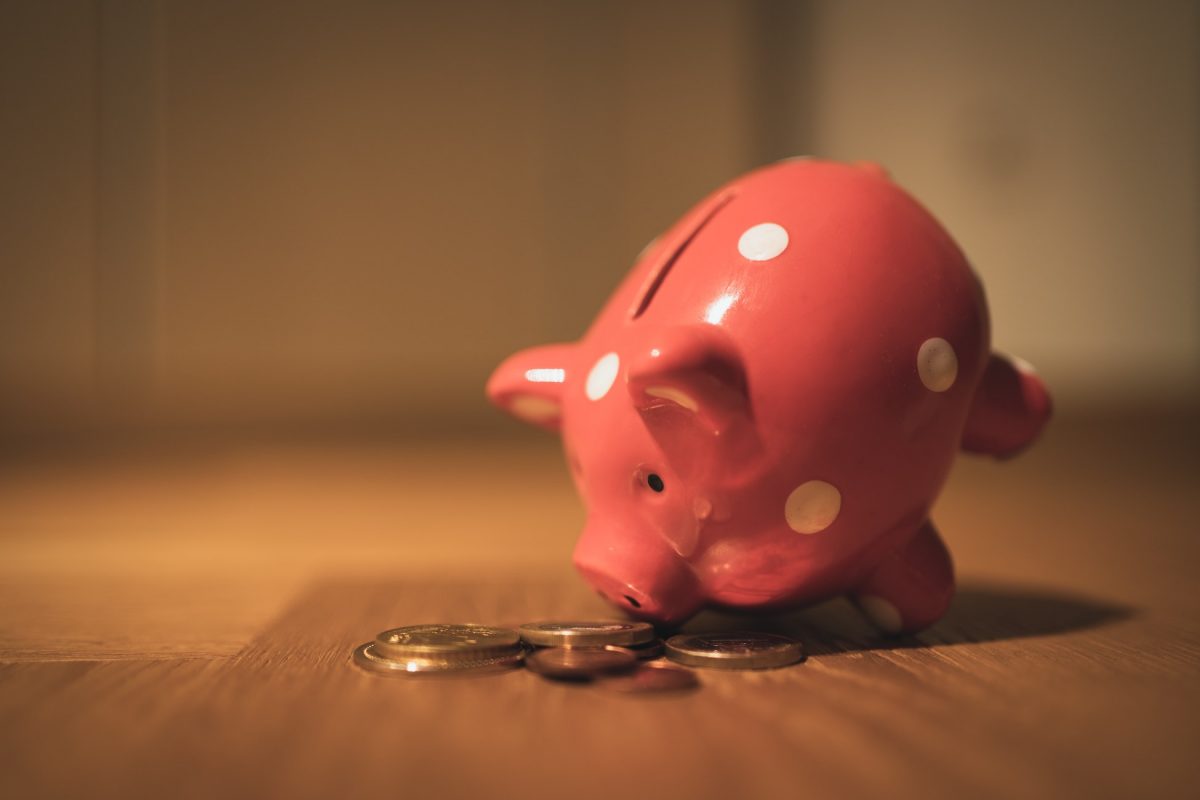Hey there, savvy money-maven! Ever stared at your credit card statement or loan offer and thought, “Wait, is it the personal loan or the credit card that’s truly my financial soulmate?” Welcome to the ultimate guide for millennials and Gen Zers who are ready to decode the battle of the plastic versus the paperwork. Whether you're dreaming of a new gadget, eyeing a spontaneous road trip, or just trying to manage the daily grind without losing your shirt, figuring out the best financing tool can feel like choosing your favorite meme—tricky but totally essential. So, buckle up as we dive into the quirky, sometimes confusing, but always fascinating world of Personal Loans vs Credit Cards!
Personal Loans Vs Credit Cards: Personal Finance Guide Table of Contents
Understanding Personal Loans: The Power of Predictability
Understanding Credit Cards: The Queen of Flexibility
Personal Loans vs Credit Cards: The Ultimate Showdown
How to Choose: Factors That Matter in Your Financial Journey
Real-Life Case Studies: Millennial and Gen Z Financial Journeys
Expert Tips for Mastering Your Financial Future
Resources and Community Support: Your Next Steps
Understanding Personal Loans: The Power of Predictability
Personal loans have earned their spot in the financial hall of fame by offering predictability and structure. Imagine a financial partner that helps you consolidate debt, cover unexpected expenses, or fund that dream renovation with a clear roadmap in hand. Personal loans typically come with fixed interest rates and set repayment schedules, meaning you always know exactly how much you’re paying each month—and when your debt will finally be a thing of the past.
The beauty of a personal loan lies in its clarity. Unlike the spontaneous nature of many credit card purchases, a personal loan is more like a well-planned road trip: you map out your route, know your stops, and can count on a stable pace along the way. This kind of loan is particularly appealing if you've got a big-ticket item in mind or if you're struggling with high-interest credit card debt and need a more affordable way to consolidate.
However, there's no such thing as a free lunch. While personal loans are great for predictability, they may come with origination fees or other costs, and the approval process can be a bit more rigorous. Lenders are going to scrutinize your credit score and income, so you'll need to be financially fit to get the best terms. In a nutshell, personal loans are fantastic if you want control and consistency but require some solid financial groundwork before you jump in.
Key Features of Personal Loans
- Fixed Interest Rates: Enjoy predictable payments that don’t change over time.
- Set Repayment Schedules: Know exactly when you'll be debt-free.
- Lump-Sum Disbursement: Receive the full amount upfront, perfect for major expenses.
- Consolidation Capabilities: Ideal for bundling various smaller debts into one neat package.
- Potential for Lower Rates: Especially if your credit is in good standing.
Whether you're somewhere between “saving for the future” and “treating yourself today,” personal loans might just be the solid, dependable sidekick you need when the financial road ahead demands a structured plan.
Understanding Credit Cards: The Queen of Flexibility
Picture your favorite all-you-can-eat buffet, but for spending options. That’s your credit card—a dynamic, flexible tool that lets you buy now and worry about paying later. Credit cards are the go-to option when spontaneity meets necessity. They’re perfect for everyday purchases, emergency funds, and even building your credit score, as long as you manage them wisely.
Credit cards offer a level of flexibility that personal loans simply do not. Need to cover an unexpected expense? Swipe your card, and you’re done. Fancy earning rewards on your everyday spend? Many credit cards come packed with perks like cashback, travel points, and exclusive discounts. They’re designed to keep you engaged, rewarded, and, dare we say, a little bit addicted to the convenience of good credit.
That said, with great power comes great responsibility. Credit cards can be a double-edged sword; if you’re not careful, the ease of spending can lead to overspending, high-interest accumulations, and an endless cycle of minimum payments. If you let your balance linger month after month, you might end up in a financial maze with little way out. The key? Use your credit cards like a responsible adult who occasionally buys a latte, not like a weekend warrior at a shopping spree.
Key Attributes of Credit Cards
- Revolving Credit: Borrow up to your credit limit and pay off the balance gradually.
- Rewards and Perks: Enjoy cashback, airline miles, and exclusive discounts.
- Flexible Payments: Pay a little now and the rest later, though interest can pile up fast.
- Emergency Access: Always there when you need an unexpected expense covered.
- Credit Building: Regular use and prompt payments can boost your credit score over time.
If you thrive on spontaneity and enjoy the thrill of rewards, a credit card might be your best financial friend—just keep an eye on that balance, and you’ll be golden.
Personal Loans vs Credit Cards: The Ultimate Showdown
Now that we've met the protagonists in our financial saga—personal loans and credit cards—it's time to watch them face off in an epic showdown. Each option has its own flavor, perks, and pitfalls, and the right choice depends on your unique goals, spending habits, and financial health. So, grab some popcorn as we break down this face-off into digestible, relatable pieces.
Interest Rates: Stability vs Flexibility
With personal loans, you’re often looking at fixed interest rates, which means your payments remain consistent. Think of it like a subscription service where you know exactly how much you’re paying every month. On the flip side, credit card interest rates tend to be variable and can jump up if you’re not careful. If you plan to pay off your balance each month, this might not be a concern, but it can quickly become a hassle if you’re carrying debt.
Repayment Structure: Scheduled vs Revolving
Personal loans require you to make fixed monthly payments over a predetermined period until the balance is paid in full. This predictable schedule can help you plan your budget more effectively. Credit cards, however, give you the freedom to pay as much or as little as you want each month—provided you meet the minimum payment. This revolving nature offers unparalleled flexibility but can also lead to a never-ending cycle of debt if not managed properly.
Fees & Hidden Costs
No financial product is completely free from fees. Personal loans can include origination fees or processing charges, while credit cards might have annual fees, balance transfer fees, or late payment penalties. The trick is to read the fine print and compare the fee structures. Sometimes, a no-fee credit card might sound appealing until you rack up high-interest charges by carrying a balance.
Usage & Flexibility
Need a lump sum to remodel your kitchen or pay for a major life event? A personal loan might be the perfect fit. But if you're more about the day-to-day spending or want to take advantage of rewards programs, a credit card offers that extra spark of flexibility. In essence, personal loans are your dependable, long-term financing partner, whereas credit cards are the flexible, on-the-go option.
Credit Building and Financial Health
Both personal loans and credit cards can boost your credit score when used responsibly. Personal loans add a mix of credit types to your profile, showing lenders that you can handle diverse forms of debt. Credit cards, on the other hand, demonstrate your ability to manage revolving credit. The key is not to overextend on either option. Maintain low balances relative to your credit limit, make payments on time, and your score is likely to soar.
In this epic battle, neither side is inherently good or bad. Instead, each product caters to different needs with varying benefits and drawbacks. Your mission? Determine which weapon suits your financial arsenal best.
How to Choose: Factors That Matter in Your Financial Journey
With your choices laid bare, the next step is figuring out which one aligns best with your current financial battle plan. Here are some key factors to weigh when deciding between a personal loan and a credit card:
Your Financial Goals
Ask yourself: Are you planning a one-time, significant investment like home improvements or debt consolidation? Or are you looking for a flexible tool to cover everyday expenses and emergencies? Personal loans offer a structured route for larger, planned expenditures, while credit cards provide the agility needed for fluctuating, everyday needs.
Your Budget and Repayment Ability
Calculate your monthly income and expenses. If you can commit to fixed, predictable payments, a personal loan might help you stay on track. However, if your income is unpredictable or you prefer having revolving credit available, a credit card may be the better route.
Interest Rates and Fees
Take a close look at the interest rates offered. For personal loans, a lower fixed interest means that you know precisely what to expect month after month, without surprises. Credit cards might flaunt attractive introductory rates, but beware of the hike once the honeymoon period ends. Crunch the numbers to evaluate which option is more cost-effective in the long run.
Your Spending Habits
Do you have a tendency to swipe without thinking, or are you a disciplined planner? If you’re the spontaneous spender who enjoys cashback rewards and travel perks, a credit card—used responsibly—can be your best friend. However, if you prefer a set-it-and-forget-it approach, the predictability of a personal loan may give you the peace of mind you crave.
Your Credit Profile
Lenders will scrutinize your credit score when deciding whether to extend a personal loan or how much credit to offer on a card. A strong credit history means better borrowing rates and terms, so a little self-reflection and maybe a credit report check can go a long way in your decision-making process.
There’s no one-size-fits-all solution, which is why it’s essential to evaluate your needs, financial goals, and lifestyle before diving into any major borrowing decision. Consider your priorities and think long term—after all, your financial well-being isn’t just about today’s convenience but tomorrow’s stability.
Real-Life Case Studies: Millennial and Gen Z Financial Journeys
Let’s turn theory into reality with a few stories that might hit a little close to home. These case studies showcase how everyday people like you have navigated the twists and turns of personal loans and credit cards to reach a stable financial footing.
Case Study 1: The Consolidator – Emily’s Journey to Debt Freedom
Emily, a 28-year-old designer in a bustling city, found herself juggling several credit card balances with sky-high interest rates. Determined to break free from the never-ending cycle of minimum payments, she decided to consolidate her debt with a personal loan. With a fixed interest rate and a clear repayment timeline, Emily was able to streamline her debts into one manageable monthly payment. Over the course of two years, she gradually reduced her overall debt, watched her credit score improve, and even celebrated a few extra dollars in her emergency fund each month. For Emily, the structured nature of a personal loan provided the stability and focus she needed to turn her financial life around.
Case Study 2: The Rewards Enthusiast – Jake’s Flexible Approach
Jake, a 24-year-old tech enthusiast, was all about maximizing every ounce of cashback possible. He loved the perks that came with his credit card—a travel reward program that sent him on a spontaneous weekend getaway and cashback incentives that made every purchase feel like a win. However, Jake learned the hard way that flexibility can sometimes lead to overspending. A few months of carrying a high balance resulted in mounting interest charges that nearly wiped out his rewards gains. Realizing that discipline was the missing link, Jake reorganized his finances, paying off his balance in full each month and using his credit card solely for planned expenses. His experience underscored the importance of responsible credit management, transforming him into a model of financial agility with a healthy dose of self-control.
Case Study 3: The Hybrid Approach – Samantha’s Personalized Financial Strategy
Samantha, a 31-year-old freelancer, found herself straddling the line between stability and flexibility. With an irregular income, she needed both the predictability of structured payments and the freedom for spontaneous expenses. Samantha embraced a hybrid strategy: she used a personal loan to tackle a large, one-time home renovation project and relied on a credit card for her day-to-day expenses and emergencies. By keeping her credit card balance low and paying her loan on time, she maintained a healthy credit score while enjoying the best of both financial worlds. Samantha’s story illustrates that sometimes, the answer isn’t choosing one over the other—it’s about finding the perfect balance that aligns with your lifestyle.
These diverse journeys highlight that there’s no universally perfect solution—just different paths that work for different people. The key takeaway? Analyze your situation, understand your spending habits, and choose the financial tool that complements your lifestyle while keeping your long-term goals in sight.
Expert Tips for Mastering Your Financial Future
No matter which financing option you lean towards, the real secret to financial success is mastering self-discipline and staying informed. Here are some expert tips to sharpen your financial prowess:
Tip 1: Track Your Spending
Whether you’re swiping your credit card or paying off a personal loan, a budget tracker is your best bud. Use budgeting apps and spreadsheets to monitor where every dollar goes. This not only pinpoints excessive spending but also helps you celebrate the little wins on your journey to financial freedom.
Tip 2: Understand Your Terms
Dig into the fine print. Know your interest rates, payment due dates, and potential fees. Being informed means avoiding surprises down the road—and saving yourself from unnecessary stress.
Tip 3: Pay Bills on Time
This may sound like obvious advice, but missing payments can hurt your credit score and lead to inflated interest and penalties. Set up reminders or automate payments, ensuring that you’re always on top of your bills without having to think twice.
Tip 4: Maintain a Healthy Credit Mix
Credit scores thrive on variety. Lenders like to see that you can handle different types of credit—be it revolving credit from your credit card or installment loans like personal loans. A balanced credit mix not only boosts your score but also demonstrates financial acumen.
Tip 5: Use Rewards Wisely
If you’re in the rewards club, make sure those points or cashback benefits actually serve a purpose. Cycle them back into savings, travel, or an occasional splurge—just be cautious not to let the allure of rewards distract you from managing your debt.
Tip 6: Educate Yourself Continually
The financial world is ever-evolving. Follow trusted personal finance blogs, join online communities, or even sign up for newsletters that keep you updated on the latest trends. Doing so will make sure your financial toolkit is always sharp and ready for any challenge.
In the end, mastering your finances isn’t about picking the flashiest option—it’s about building habits that empower you for the long haul. Small, consistent steps often lead to big results.
Resources and Community Support: Your Next Steps
Now that you’ve got the encounter guide to Personal Loans vs Credit Cards down, it’s time to take action! Empower yourself with the right tools, connect with fellow finance enthusiasts, and join communities that celebrate smart spending. Check out reputable financial websites, download budgeting apps, or even explore personal finance podcasts geared towards millennials and Gen Zers. These resources can offer insights, updates, and real-life stories that resonate with your financial journey.
Additionally, online communities on platforms like Reddit, Facebook groups, and dedicated financial forums can be goldmines of practical advice and peer support. Whether you're debating the best credit card rewards program or comparing loan options, sharing experiences and tips with a community that gets it can make the learning curve a lot less steep—and a lot more fun.
Remember, you’re not alone in this journey. The world of personal finance is vast, but with the right knowledge, strategies, and community support, you can carve out a future where your money works as hard as you do. Take the next step by exploring one of these resources today, and watch your financial confidence soar!
Personal Loans vs Credit Cards: Frequently Asked Questions
Below are some of the most common questions we get about personal loans and credit cards. Dive in, get your questions answered, and reclaim control of your financial destiny!
1. What are the primary differences between a personal loan and a credit card?
Personal loans typically offer fixed interest rates and set repayment schedules with a lump-sum disbursement, making them ideal for major expenses or debt consolidation. Credit cards, on the other hand, provide revolving credit with flexibility, rewards, and the opportunity to pay off the balance over time, though they often come with higher interest rates if you carry a balance.
2. Can using a credit card effectively boost my credit score?
Yes, if you manage your credit card wisely by keeping your balance low relative to your credit limit and making timely payments, it can positively impact your credit score.
3. Is a personal loan a good option for consolidating debt?
Absolutely. Personal loans can consolidate multiple debts into a single, predictable monthly payment, often at a lower interest rate, which can simplify your finances and reduce overall interest costs.
4. What should I consider when choosing between these two financing options?
Key factors include your financial goals, spending habits, existing debt levels, interest rates, fees, and whether you need structured repayments or flexible, revolving credit.
5. Can I benefit from rewards if I use a credit card?
Yes, many credit cards offer rewards such as cashback, travel points, or other perks. However, it’s important to pay off your balance each month to avoid high interest charges that can negate those rewards.
6. What happens if I miss a payment on my personal loan or credit card?
Missing payments can result in late fees, increased interest rates, and a negative impact on your credit score. Always strive to meet your payment deadlines to maintain financial health.
7. How do I determine which option is better for me?
Evaluate your spending habits, financial goals, and current debt levels. If you prefer predictable fixed payments for a specific expense, a personal loan might be the right choice. If you need flexible access to funds and enjoy rewards, a credit card might work better—just use it responsibly.
Your Journey to Smarter Financial Decisions
Making the decision between a personal loan and a credit card isn’t about choosing the “better” option—it’s about selecting the tool that fits your unique financial landscape. Every swipe or signature can be a step toward building your financial future, whether that means consolidating debt, managing daily expenses, or simply setting up expectations for your spending.
Think of your financial journey as an evolving road trip. Some roads are smooth and predictable—just like a personal loan’s fixed repayment schedule—while others are freewheeling, full of unexpected turns and detours, much like the rewards and challenges of using a credit card. What matters is that you understand your vehicle’s capabilities and limitations, plan your routes wisely, and always keep an eye on the road signs ahead.
With the insights provided in this guide, you’re now equipped to make decisions that not only fuel your present needs but also set you up for future success. Remember, smart financial choices today pave the way for a worry-free tomorrow. So, whether you opt for the predictable structure of a personal loan or the versatile dynamism of a credit card, trust your instincts, stay informed, and keep pushing forward on your journey to financial empowerment.
Celebrate your progress, learn from every swipe and repayment, and continue evolving your money management strategy. The future is bright when you’re in control!













